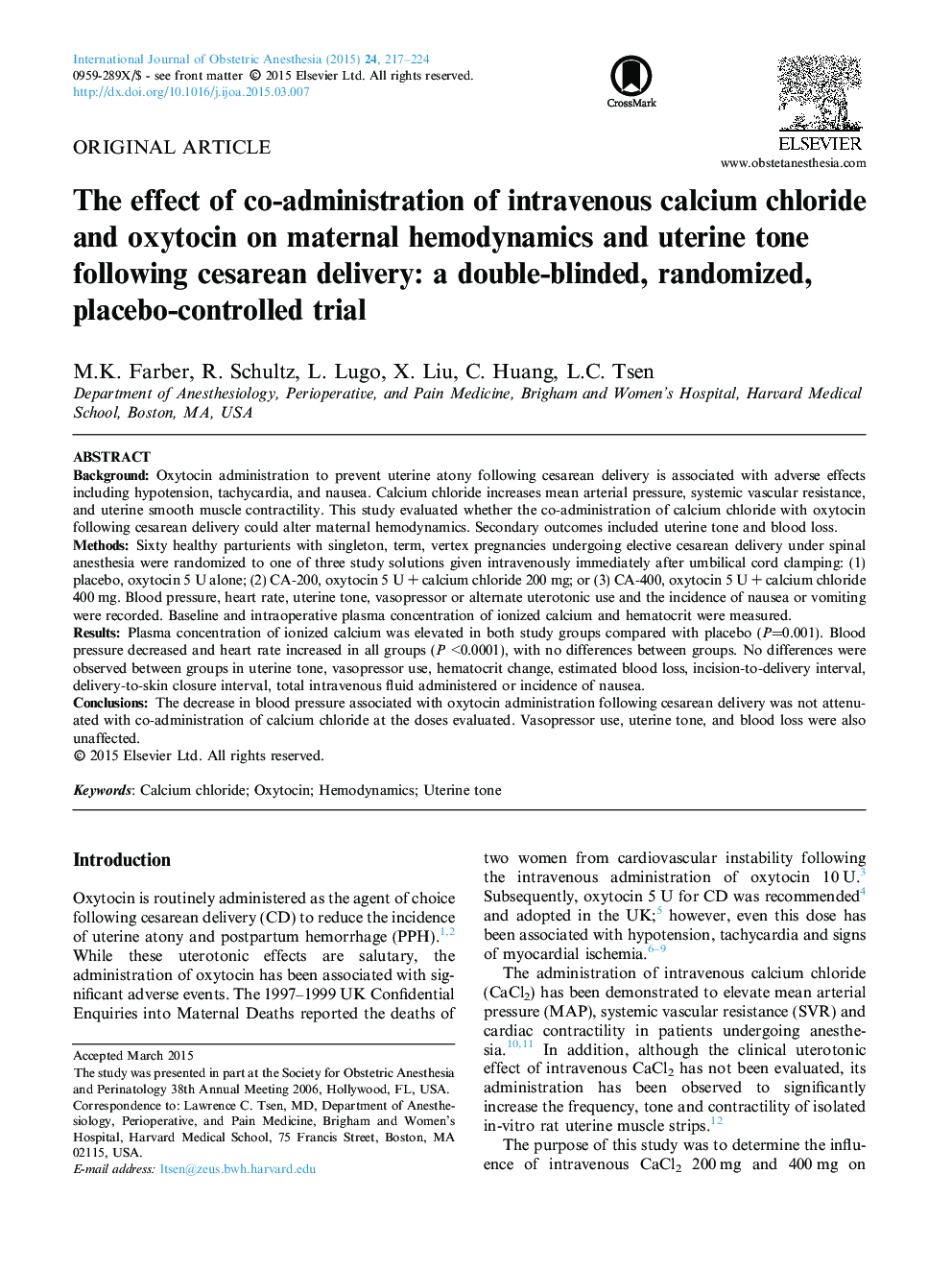| Article ID | Journal | Published Year | Pages | File Type |
|---|---|---|---|---|
| 2757520 | International Journal of Obstetric Anesthesia | 2015 | 8 Pages |
•Oxytocin administration can result in hypotension and tachycardia.•Calcium chloride can increase mean arterial pressure and uterine contractility.•Oxytocin 5 U with calcium chloride (400 mg, 200 mg, 0 mg) was evaluated.•Significant increases in serum ionized calcium were observed.•No differences in blood pressure, heart rate, or uterine tone were observed.
BackgroundOxytocin administration to prevent uterine atony following cesarean delivery is associated with adverse effects including hypotension, tachycardia, and nausea. Calcium chloride increases mean arterial pressure, systemic vascular resistance, and uterine smooth muscle contractility. This study evaluated whether the co-administration of calcium chloride with oxytocin following cesarean delivery could alter maternal hemodynamics. Secondary outcomes included uterine tone and blood loss.MethodsSixty healthy parturients with singleton, term, vertex pregnancies undergoing elective cesarean delivery under spinal anesthesia were randomized to one of three study solutions given intravenously immediately after umbilical cord clamping: (1) placebo, oxytocin 5 U alone; (2) CA-200, oxytocin 5 U + calcium chloride 200 mg; or (3) CA-400, oxytocin 5 U + calcium chloride 400 mg. Blood pressure, heart rate, uterine tone, vasopressor or alternate uterotonic use and the incidence of nausea or vomiting were recorded. Baseline and intraoperative plasma concentration of ionized calcium and hematocrit were measured.ResultsPlasma concentration of ionized calcium was elevated in both study groups compared with placebo (P=0.001). Blood pressure decreased and heart rate increased in all groups (P <0.0001), with no differences between groups. No differences were observed between groups in uterine tone, vasopressor use, hematocrit change, estimated blood loss, incision-to-delivery interval, delivery-to-skin closure interval, total intravenous fluid administered or incidence of nausea.ConclusionsThe decrease in blood pressure associated with oxytocin administration following cesarean delivery was not attenuated with co-administration of calcium chloride at the doses evaluated. Vasopressor use, uterine tone, and blood loss were also unaffected.
